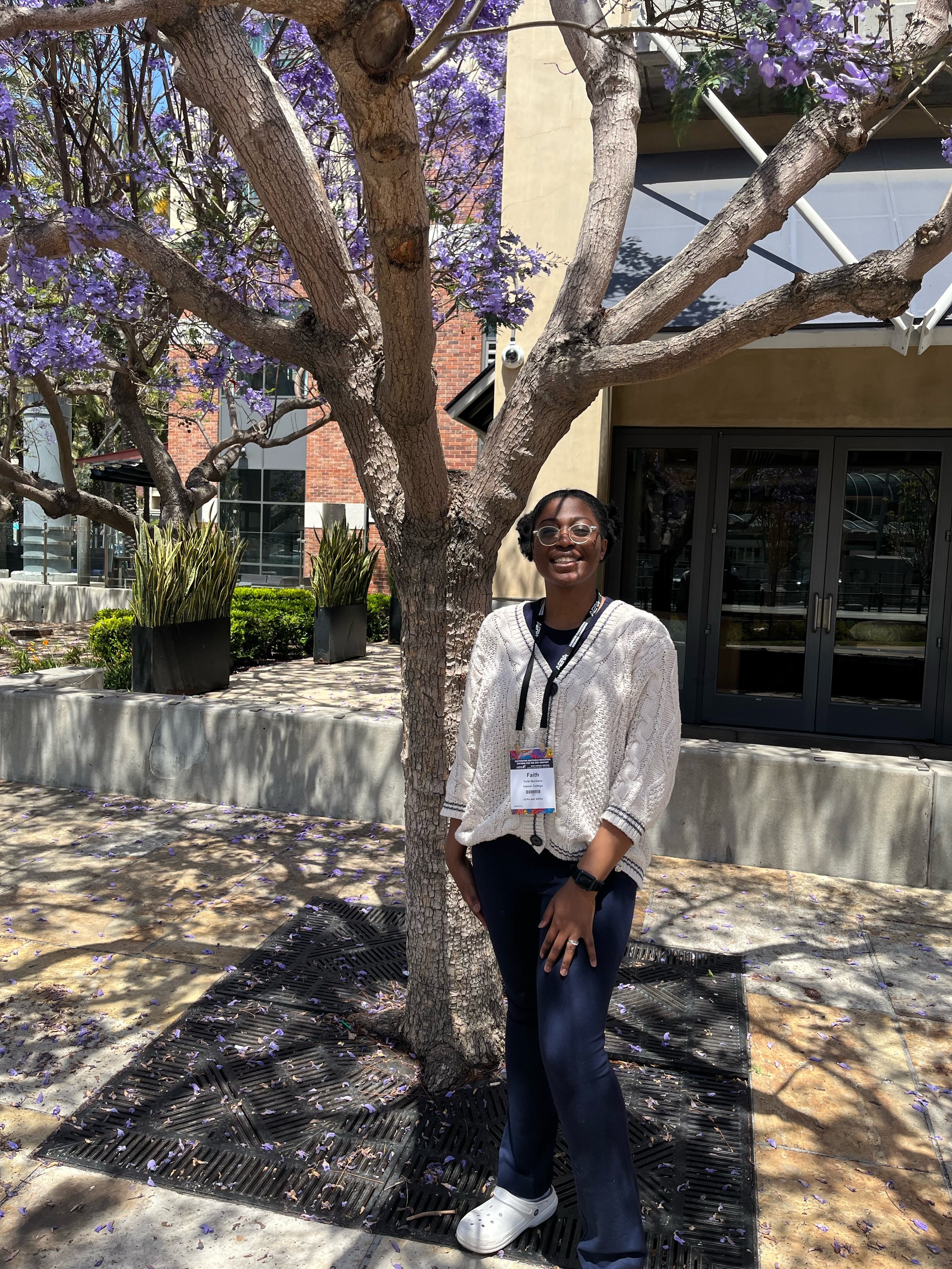About Me
I am Faith D. Northern (she/her), an Afro-Jamaican, first-generation, low-income (FGLI) doctoral candidate in the Sociology of Education program at NYU Steinhardt. My scholarship examines how antiblackness, diaspora, and institutional life intersect to shape the experiences of Afro-Caribbean students in U.S. higher education.
My dissertation, Antiblackness in the Academy: Afro-Caribbean Students Navigating U.S. Higher Education, explores how Afro-Caribbean students experience, interpret, and resist antiblackness across campus spaces, policies, and interpersonal relationships. I draw on Afro-pessimist theory, diaspora studies, and Community Cultural Wealth to illuminate both the violence and creativity within Black student life.
My guiding conviction is simple: research must live beyond the academy. Through my work, I aim to produce knowledge that informs policy, empowers communities, and helps institutions reckon with the conditions they sustain.
Background
I graduated from Irvington High School as the Salutatorian, amongst other accolades. Driven by curiosity about the disparities people of color face in higher education and personal family struggles, I applied for and was granted a full-ride scholarship to Vassar College with the help of SEEDS — Access Changes Everything and Questbridge.
At Vassar College, I developed my skills in three different disciplines. My curious nature predisposed me to the realm of biomedical research, where, during my first year, I began conducting chemistry research under the guidance of Dr. Teresa Garrett. From then on, I continued scientific research, ranging from microbiology research to therapeutics development at Rutgers University, and completed my senior year studies under Dr. Krystle McLaughlin, working on characterizing a specific family of conjugative plasmids in Staphylococcus aureus.
Yet, as I advanced academically, I kept returning to the foundational questions that inspired my college journey—particularly around belonging, identity, and educational access for marginalized communities. As I confronted my own experiences with imposter syndrome, I turned toward educational studies, where I began reimagining how research could be a tool for equity and transformation. I became a research and teaching assistant in the Department of Education, working closely with Dr. Kimberly Williams-Brown and deepening my training in qualitative inquiry and classroom structure, management, and engagement.
In parallel, my history coursework allowed me to explore the colonial entanglements that continue to shape life in the Caribbean. I focused specifically on Jamaica’s relationship to British imperialism, examining how colonial legacies persist in educational systems, migration patterns, and identity formation across the Afro-Caribbean diaspora. This historical grounding helped me make critical connections between past and present systems of racial domination and continues to inform my approach to educational research.
Through this multidisciplinary path, I developed a rich and versatile skill set grounded in liberal arts learning and a commitment to community-engaged scholarship. I remain driven by a desire to produce research that bridges the gap between academia and Black and Brown communities, develops sustainable solutions, and contributes to the collective welfare and dignity of historically marginalized groups.
Dream it
•
Build it
•
Grow it
•
Dream it • Build it • Grow it •
Research-Scholar Educator
As a research scholar and educator, I see my work as a bridge between evidence and action. I strive to:
Investigate how race, identity, and socioeconomic status intersect in shaping educational experiences.
Develop research-driven strategies to address systemic inequities and improve outcomes for underserved communities.
Translate findings into accessible formats for educators, policymakers, and students.
Cultivate spaces of dialogue and reflection, particularly for Black and immigrant students navigating higher education.
My approach is grounded in community cultural wealth, critical policy analysis, and public scholarship — ensuring that research remains accountable to the communities it represents.
Contact Me
Interested in working together or just have a few questions?
Fill out the form below, and I’ll be in touch as soon as possible.
Whether you’re looking to:
Collaborate on a project,
Learn more about my research and current work,
Explore services, tools, or teaching resources, or
Simply start a conversation,
I’d love to hear from you!
Your message, stories, and curiosities matter—and I look forward to connecting with you soon.
